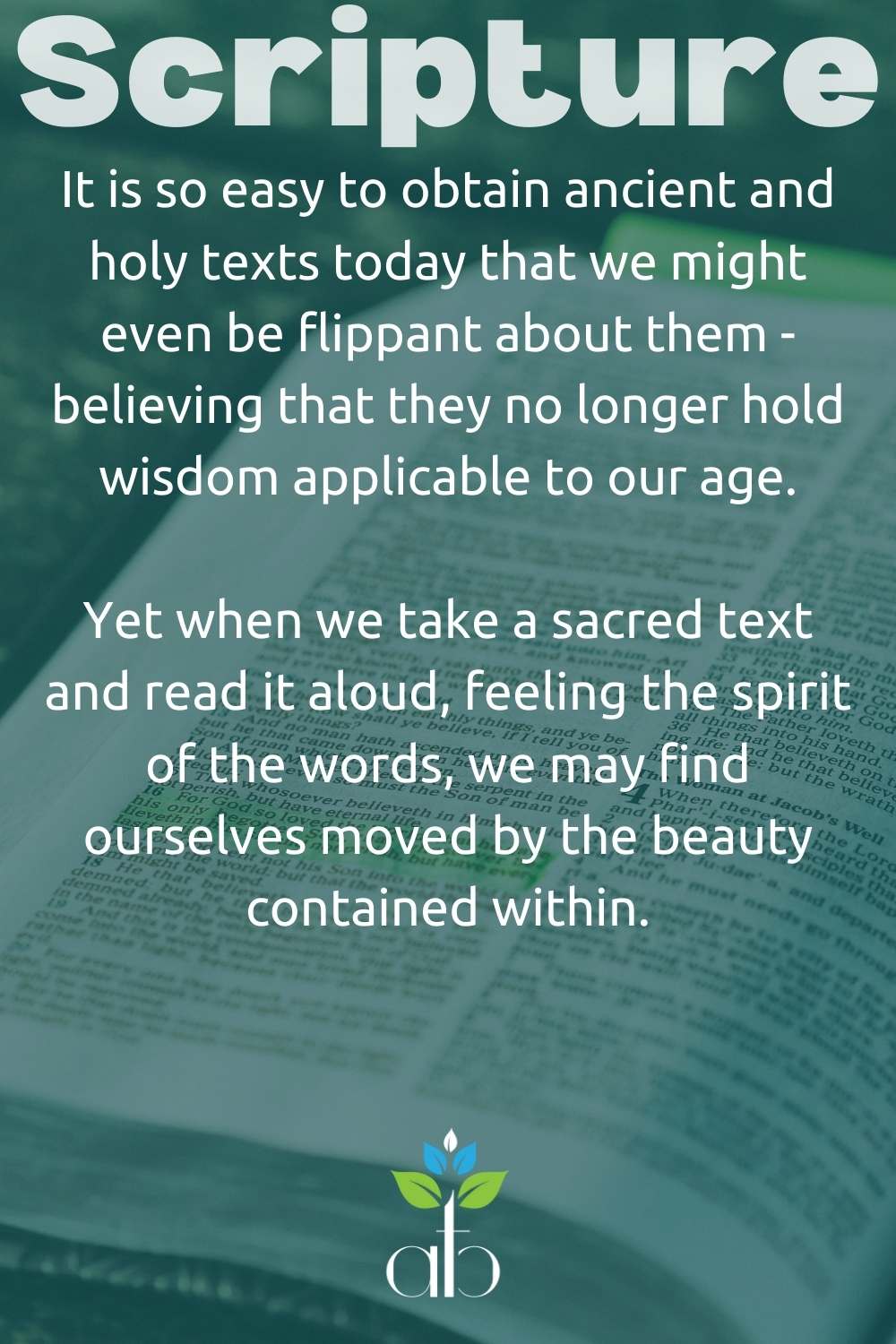Episode 402
Read the Scriptures

A long time ago, paper was scarce, and people had to choose carefully what they wrote.
Some of what they wrote survives to this day, and some of it is just as valuable as when it was written.
Today it is very easy to find the Torah, the New Testament, the Koran, the Yoga Sutras, the Vedas, and many other holy texts, carefully preserved from a long tradition. It’s so easy that we might even take it flippantly, and when we pick up these books we seek to disagree or dismiss that ancient wisdom.
But read well and earnestly, especially aloud, drawing the spirit from those words, and you might very quickly find the deeper meanings, the deeper emotions, and the deeper value.
Hosts & Guests
Kurt Robinson
Transcript
I’d like to talk to you about reading the scriptures.
Many years ago, I think like 20 years ago I read Patañjali, another yoga text. I read some important words that said its part of the daily practice to read the scriptures.
Back then I don’t think I knew what a veda was exactly, what the other Indian texts were.
But I had on the bookshelf a copy of Gideon’s New Testament. I took it down and read it. I admit I wasn’t the perfect followers of the fine words of advice contained in that book but I was trying. Over the long term our efforts count. Our efforts stack up just like slow drops of water filling a barrel or wearing away a stone until it is smooth.
Over the long term these things make a difference in our minds and in our hearts. Having in our minds these examples of some of the finest examples of humanity and what we can aspire to.
Spiritual manifest within the terrestrial.
Some people say to me, they would say to me what do I care what Jesus said? That’s quite apathetic.
I don’t what I would have said now. I think I said I would quote the Bible to make a point, I mean these words are there for something.
Now I probably say I care, I care so much what these holy texts have to teach us. The amount that I care would outweigh a million apathetic souls.
That is how much I care. That is how important these holy texts are.
Sometimes we might have that attitude, that apathetic attitude. Many people if they are being prosthelized to, they say I am going to read this with a critical eye with the bitterness of my soul.
Because I am bitter I expect to find something bitter because we don’t see what is really there. A lot of the time what we see is ourselves.
If we look more closely with the right intention, the intention of truth that is what we see truly. What happens is I look with a critical eye, I read a verse and I say that I ridiculous. That does not make sense. That is not literally true.
Saying that the kingdom of god is within us, what does it mean?
An abstraction. This is why we have the opposite tradition.
Look at holy texts and criticizing them like that isn’t really traditional. You might say its kind of a fad or something like that.
Looking for criticism alone.
That’s why there is the tradition of lectio divina that is holy reading or divine reading. Especially if we read aloud a holy text we can start to understand a little better what the people meant, what the meaning, what the feeling and soul behind those words are. Even though these books have probably been translated many times I think the essence can be hidden.
In the mornings I like to read from Baba Muktananda’ Play of Consciousness. This book still so potent. Some say that just to touch it you will get a feeling of what is behind it.
I have certainly gotten a sense of that myself especially when I am reading it. Many times I don’t fully comprehend what I am reading. I pause and try to contemplate and I weep with the divine beauty of what is expressed because when a writer, when a guru, when a master teaches us his words or her words echo throughout whatever media.
It only takes a little bit a seeking, with the amount of faith smaller than a mustard seed to begin to reveal that truth. If we are are earnest in our seeking, if we are earnest in our being we will find something special there.
Like I said the sages didn’t write these texts for something or say these words for nothing.
The people, the servants of truth who dutifully repeated them through oral and written traditions, they didn’t do it for nothing.
These words aren’t standing still after thousands of years because they are a trifle. Like a Stradivarius violin, its intact, maintained well taken care of because of people who took care of it who knew that it was valuable.
Yes they said these words for something.
Yes they said they wrote these words for something.
When we read carefully and listen carefully and feel carefully we will see. At first darkly then by candlelight then by suns we will see exactly what that something is when we read the scriptures.

New Episodes Every Weekday
11am Mexico City time
10 min episodes Monday - Thursday
1 h interview episode on Fridays
As an Amazon Associate I earn from qualifying purchases.
Stay Beautiful &
Stay Connected
